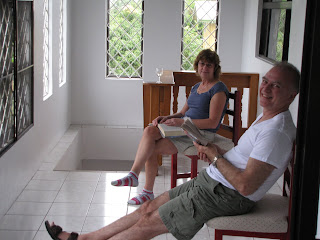One of the best parts of the Christmas season is that old friends and family who have moved away from London come home for the holidays.
For the last 25 years I’ve called London my home so I usually wait for people to come to me, but this year is different – this year I came back to the 519 after spending three months in Fiji.
At the risk of sounding cliché, there’s no place like home, especially during Christmas time.
And my timing couldn’t have been better. Not only would I be home for Christmas, Boxing Day, New Year’s Eve and my birthday – but I would also be home for the 5th Annual 12 Bars of Christmas.

Twelve bars, the brainchild of Dave Strano, is night of organized Christmas bar-hopping where CCH alumni –- and those who wish they attended Catholic Central – get together to drink, drink and be merry.
Now in its fifth year, the event has become the de facto meeting place for many friends who wouldn’t normally see each other. I, for example, have limited time in London and won’t get a chance to spend time with everyone I would like to see. One friend of mine is coming home from Belgium and only staying in town for a short time, another is now a proud father and doesn’t have time for partying, but we all decided to go out for 12 bars. The night is a one-stop shop for catching up with old friends or having a much-needed night out with familiar faces.
More than 150 people came out for the night, which starts in downtown’s south end and gradually moves northward one watering hole at a time.
Allow me to use a metaphor to describe the 12 bars. The event is like a snowball rolling down a hill. It starts out small, perhaps with old man Strano, his Fugazi crew and few die-hards. But slowly the snowball starts to pick up momentum as it gets rolling to new bars, and with each bar it picks up more and more people people. Eventually the snowball becomes gigantic and somewhat out of control (usually around the 8th bar) as a group exceeding 100 rolls down Richmond Row.
Most in attendance try to drink at least one drink before “the Skip” blows his trademark whistle signaling time for the snowball to roll out, but some seasoned veterans manage to down two beverages with time to spare.
At some of the locations, the 12 bars crew are the only patrons, while at other stops we mix in with students fresh off finishing exams, unknown locals – and even another, albeit much weaker, 12 bars party.
From fraternizing with a freckled friend who I see only once a year on 12 bars to telling tantalizing tales of my Fijian escapades to having a few drinks with some old pals I never should have fallen out of touch with the evening is an incredible success.
The night has a specific feeling that cannot be replicated on any of the calendar’s other 364 days. I don’t know where I’ll be living next year, but I’m already looking forward to coming back to London for the 12 bars of 2010.


























